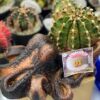Customs and Traditions for Blessings During the Lunar New Year at Temples in Guangzhou

Guangzhou, one of China’s most vibrant and historically rich cities, is known not only for its modernity but also for its deep-rooted cultural and religious heritage. Among the various cultural practices that take place throughout the year, the customs associated with the Lunar New Year (also known as the Spring Festival) hold special significance. The Lunar New Year is a time for family reunions, feasts, and, most importantly, seeking blessings for the coming year. Temples in Guangzhou, particularly Buddhist temples, play a vital role during this time, offering spiritual rituals and blessings that are integral to the city’s celebrations. In this article, we will explore the various customs and traditions observed in temples during the Lunar New Year in Guangzhou, highlighting the cultural and religious significance behind these practices.
1. The Importance of the Lunar New Year in Guangzhou
The Lunar New Year, which typically falls between January 21 and February 20, is the most important holiday in Chinese culture. It marks the beginning of the lunar calendar and is celebrated with numerous traditional practices aimed at ushering in good fortune, health, and prosperity for the year ahead. In Guangzhou, as in other parts of China, this festival is a time to honor ancestors, reunite with family, and seek blessings for a successful year.
While the celebrations are widely observed in households and public spaces, temples, particularly Buddhist and Taoist temples, serve as important spiritual centers during the New Year festivities. These temples offer a space for worshipers to engage in spiritual practices, make offerings, and participate in rituals that are believed to bring good luck, health, and success in the upcoming year.
2. The Role of Temples in Lunar New Year Celebrations
Temples in Guangzhou, many of which have been standing for centuries, become focal points for religious and cultural activities during the Lunar New Year. These temples serve not only as places of worship but also as sanctuaries where people come to seek blessings for various aspects of life, including wealth, family harmony, health, and protection from misfortune.
During the Lunar New Year, temples are often adorned with decorations that symbolize prosperity, good fortune, and happiness. Red lanterns, banners, and couplets with auspicious messages are displayed throughout temple grounds. The sound of chanting monks, the smell of incense, and the sight of people performing prayers create a deeply spiritual atmosphere that is integral to the cultural fabric of the Lunar New Year in Guangzhou.
3. Traditional Customs for Seeking Blessings
A. Offering Incense and Prayers
One of the most common practices in Buddhist temples during the Lunar New Year is the offering of incense. Worshipers visit temples to light incense sticks as a sign of respect and devotion to the Buddha and other deities. It is believed that the act of lighting incense and offering prayers helps to purify the body and mind, as well as attract positive energy and blessings.
Visitors to temples like the Guangxiao Temple, one of the oldest and most famous Buddhist temples in Guangzhou, often gather in the temple courtyards to light incense, place offerings of fruit or flowers on the altars, and silently pray for good fortune in the coming year. The incense smoke, rising upward, symbolizes the connection between the earthly realm and the divine. Worshipers believe that their wishes and prayers will be carried by the smoke to the heavens, where they will be heard by the Buddha and other deities.
B. Making Donations and Charity
Another key custom during the Lunar New Year in Guangzhou’s temples is making donations or participating in charitable activities. It is a common belief in Chinese culture that by giving to others, one accumulates merit, which in turn leads to good fortune and blessings. Many people visit temples to donate money, food, or other essentials to the temple’s charity initiatives or to help those in need.
In some temples, large donation boxes are placed in visible areas where people can offer money as a symbol of their generosity. This act of charity is believed to bring prosperity, as it not only benefits others but also accumulates merit for the donor. Additionally, some temples hold special fundraising events or charity bazaars during the New Year, where the proceeds go towards supporting the temple’s operations, local communities, and those facing hardship.
C. Praying for Family Blessings and Harmony
The Lunar New Year is traditionally a time for family reunions, and many families in Guangzhou visit temples to pray for family unity and harmony in the coming year. In Buddhist temples, this practice is often accompanied by the chanting of prayers and sutras for the well-being of family members, including elders, children, and relatives.
It is common for people to purchase symbolic items such as lotus flowers, red envelopes, or candles from the temple as offerings. These items are believed to bring peace and unity to the family. Prayers for health, wealth, and protection from misfortune are recited, with the hope that the year ahead will be filled with blessings and good fortune for all family members.
D. Seeking Prosperity and Wealth
In addition to prayers for family blessings, many people visit temples in Guangzhou to seek prosperity and wealth for the upcoming year. Buddhist temples often hold special ceremonies dedicated to attracting financial success and business growth. These rituals are especially popular among entrepreneurs, business owners, and those working in trade, as they believe that receiving blessings from the Buddha or other deities can lead to financial prosperity.
During these rituals, monks may recite specific sutras that are thought to bring good luck and financial gain. Additionally, many people purchase symbolic offerings such as gold-plated Buddha statues, coins, or other auspicious objects believed to bring wealth. Some temples also offer special “fortune slips,” where worshipers draw a piece of paper with a fortune or blessing written on it, which is believed to provide insight into their financial future.
E. Participating in New Year Rituals and Ceremonies
In many temples, special rituals and ceremonies are held during the Lunar New Year to mark the occasion. These events often include chanting, prayers, and even public talks on Buddhist teachings. For example, the famous Huadu Temple in Guangzhou holds a New Year ceremony that includes a public Buddhist sermon on the first day of the Lunar New Year. During this event, monks deliver messages of peace, prosperity, and compassion to all those present, reinforcing the central tenets of Buddhism as a guide for living a prosperous and harmonious life.
Visitors to these ceremonies often engage in group prayers, where they chant in unison with the monks. The collective chanting creates a sense of community and shared purpose, with everyone coming together to seek blessings for the new year. This communal spirit is one of the most defining aspects of the New Year celebrations at temples in Guangzhou.
4. Symbolism of the Lunar New Year Customs in Guangzhou’s Temples
The customs observed during the Lunar New Year at temples in Guangzhou are rich in symbolism, each act infused with deep meaning. The offerings of incense, donations, and prayers reflect the Buddhist values of compassion, generosity, and mindfulness. The act of lighting incense and offering prayers is symbolic of purifying the mind and seeking spiritual connection, while the donations represent the importance of charity and selflessness in Buddhist teachings.
The symbolic items used in the rituals, such as lotus flowers, candles, and gold-plated Buddha statues, carry deep meanings as well. The lotus flower is a symbol of purity and enlightenment, while candles represent light, hope, and the dispelling of darkness. Gold-plated objects, such as statues and coins, symbolize wealth and prosperity.
These customs help reinforce the connection between the earthly and spiritual realms. By engaging in these practices, worshipers not only seek blessings for the new year but also reinforce their faith in the Buddhist teachings and the interconnectedness of all life.
5. Conclusion
The Lunar New Year celebrations at temples in Guangzhou are a beautiful fusion of religious devotion and cultural tradition. The customs observed in these temples during this festive time are deeply rooted in Buddhist teachings and serve as a means for worshipers to seek blessings for themselves, their families, and their communities. Through practices such as offering incense, making donations, and participating in public rituals, the people of Guangzhou reaffirm their connection to both the divine and their cultural heritage. As the new year unfolds, these ancient customs continue to offer a sense of hope, peace, and prosperity to those who partake in them, ensuring that the traditions of the past remain an integral part of the present and future of this vibrant city.

